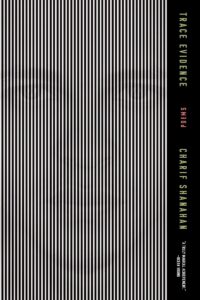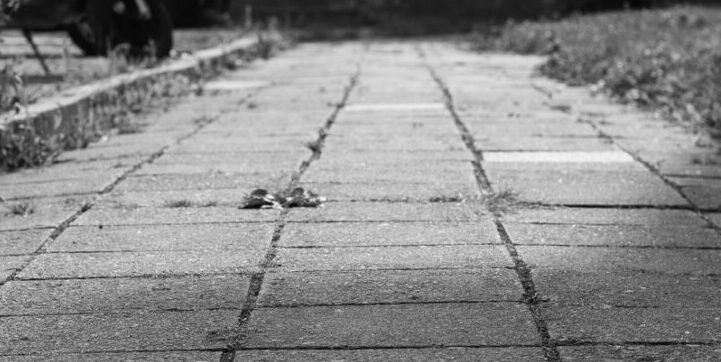Guns and tear gas on TV are not where I want to begin.
The rejection, for me, came from both directions.
Home was not a place in any sense, an idea defined by its absence.
What about here, what about now, I know to ask myself.
“Years ago I hurt my neck in an accident,” I write—and before I can finish, I turn away from me.
Who was the first who turned away?
Some say I lack the right to complain because I still have breath.
I try to be deliberate, to be present inside the time that partitions the day.
Time is less a measure of what is, more a framework of control, a structuring tool;
An hour reflects the notion that we belong and are separate at once.
I understand so little about progress.
Some call grief complaint.
Once, an acquaintance, performing both conviction and lament:
How hard it must be to walk into a room and be neither Black nor white!
His motivation not to empathize, but to test a hypothesis: to ask me
Who I was, not seeing he had already decided.
I admit I fail at being present. I prepare for the hour I lose by preparing.
The self I inhabit is fluid, shifting, I know to remind myself.
The chokehold originates in the martial arts, a position of active defense.
“Air chokes” and “blood chokes” are the two types.
In both instances, the purpose is to induce an unconscious state, even death.
As the measures of day proceed, an unconscious state becomes my objective.
You’ll have to forgive me for being heavy.
Speaking to you here, like this, is the most difficult thing I can do.
The presence it requires is agonizing, feels fatal.
On a cellular level trauma is inscribed into the body of the person who survives it, scientists confirm.
Some say the word trauma is overused these days to the extent its meaning is diminished.
The intention of the chokehold is to induce an unconscious state.
Unconscious states vary in nature and origin.
In waking dreams, before I wake, the tasks of the day assert themselves.
One task is to go to the gym. One task is to deconstruct racial constructs.
Guns and tear gas are not where I would choose to begin.
I try to be deliberate, to be present. In a way, my to-do list seems manageable, even standard.
I reduce each task to its constituent parts for efficiency and practicability.
In an e-mail to a student I explain: To racialize is the act of assigning a racial category to a person’s body,
E.g., An Arab from the Maghreb, his mother, in the United States, is racialized as Black.
Scientists say there is no single physical attribute that establishes a so-called race.
Scientists say trauma lives inside the body and is passed on generationally.
Physiologically, joy is a surge of dopamine and serotonin in the brain.
In an experience of joy, it is unclear whether physiology or event comes first.
Nine and a half minutes of a knee on a neck is not, formally, a chokehold.
The “choke” of “chokehold” points less to the neck of the victim, more to the hands of the perp.
E.g., you can “choke” a pen, a water hose, a clothesline.
Nine and a half minutes of a knee on a neck is more akin to—and I turn away from me again.
Is one’s “psychology” a spiritual or physiological occurrence?
If he felt scared or threatened, or even a pressure to do his job in a way he had fundamentally misinterpreted, but believed in because reinforced by the system he worked for and within,
Why was his face so neutral, so casual?
The act of racialization occurs instantly, prior to applying interpretations of gender or age, scientists say.
In the late ’00s, popular culture felt the need to recast “homophobia”;
You’re not scared, you’re just an asshole, the memes said.
“Racism” is not, etymologically, conceived as fear.
The -ism suffix forms action nouns of verbs, e.g., Baptism is the action noun of the verb baptize.
Race by this logic would be a verb root, racism the act of performing race.
The sinister connotation of “racism” suggests the “race” being performed by “racism” is sinister.
If “racism” exists to uphold the supremacy of the “White” racial category,
Whiteness by this logic is sinister.
I try to be deliberate, to inhabit the present moment that agitates me into fleeing.
Being here now, with you, speaking here now, with you, is the most difficult thing I can do.
I am not being rational, I am trying to reduce the present into its constituent parts.
Last month, a student e-mailed me to say she was too scared to go to any class but ours.
It was not a compliment. I did not take it as a compliment.
I am tired of apologizing for the heaviness of what I am required to discuss in order to live.
I tell the student she is worthy, I ask her to write a poem about her worthiness.
When I turn away from the day, I enter an unconscious state. I seek it
Though years ago, I wrote, “I want to enter my life like a room.”
_____________________________________

Excerpted from Trace Evidence by Charif Shanahan. Used with permission from Tin House. Copyright © 2023 by Charif Shanahan.
Charif Shanahan
Charif Shanahan is the author of Into Each Room We Enter without Knowing, a Lambda Literary Award and Publishing Triangle’s Thom Gunn Award Finalist. His work has appeared in American Poetry Review, The Nation, The New Yorker, The New York Times Magazine, The Paris Review, PBS NewsHour, and Poetry. He has received fellowships from the National Endowment of the Arts, the Stegner Fellowship Program, and the Fulbright Commission. An Assistant Professor of English and Creative Writing at Northwestern University, Charif lives in Chicago, Illinois.













